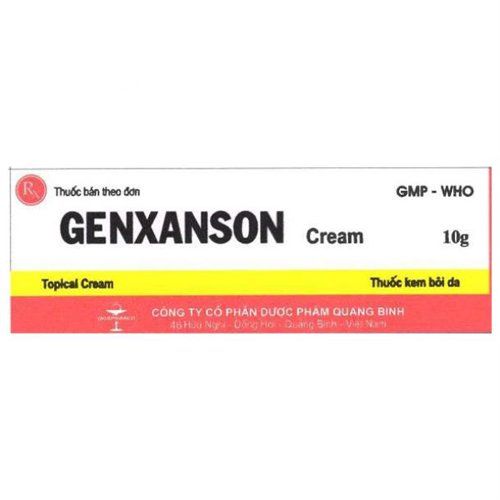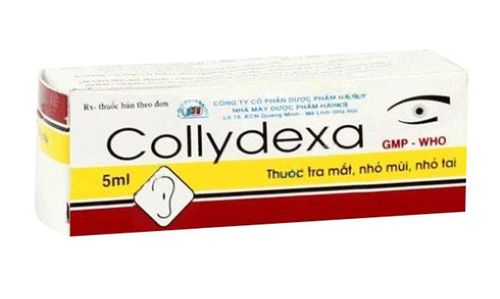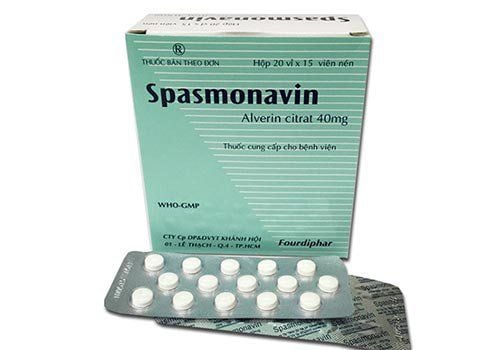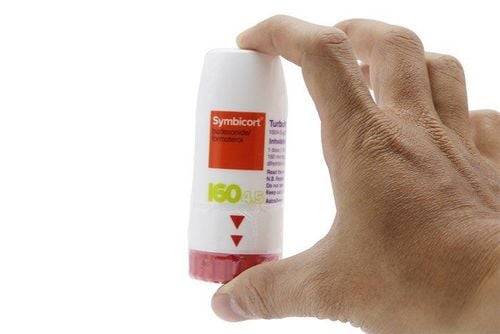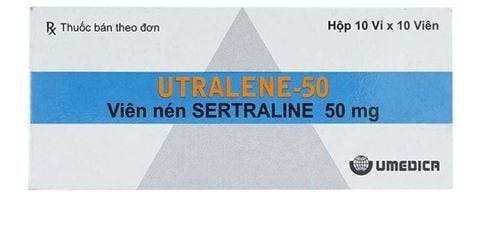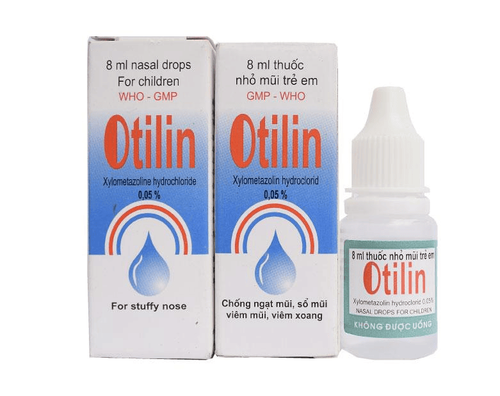This is an automatically translated article.
Dextazyne is indicated in the treatment of inflammatory conditions such as arthritis, sinusitis, bronchial asthma, glomerulonephritis,... Let's learn about the uses and notes when using Dextazyne through the article below. .1. Uses of the drug Dextazyne
"What are the effects of Dextazyne?". Dextazyne medicine contains the active ingredient Dexamethasone 0.5mg in the form of tablets. Dextazyne is indicated in the following cases:
Anti-inflammatory in arthritis, sinusitis, bronchial asthma, glomerulonephritis,...; Severe allergies; Combination with other methods in the treatment of cerebral edema; During pregnancy, the drug is used prenatally in premature labor (from 24 to 34 weeks) to promote fetal maturation; Adjuvant therapy in the treatment of pneumococcal meningitis.
2. Mechanism of action
Active ingredient Dexamethasone is a synthetic glucocorticoid, acting by binding to cell receptors, translocating into the cell nucleus and then acting on a number of translated genes. In addition, Dexamethasone has the main effects of anti-allergic, anti-inflammatory and immunosuppressive. The drug has little effect on the electrolyte balance of the body. The anti-inflammatory effect of Dexamethasone is 30 times stronger than Hydrocortisone and 7 times stronger than Prednisolone.
After oral administration, Dexamethasone is well absorbed into the gastrointestinal tract, with the greatest absorption rate in the kidneys, liver and adrenal glands. Dexamethasone is excreted through the placenta, a small amount of the drug passes into breast milk. The rate of binding to plasma proteins is up to 77% (mainly albumin). The drug is excreted mainly in the urine as unconjugated form (half-life about 36 - 54 hours).
3. Dosage of the drug Dextazyne
Dextazyne belongs to the group of prescription drugs, so the dose of the drug used should be prescribed by the doctor based on the medical condition.
Some recommendations on the dosage of Dextazyne are as follows:
Adults: Treatment of acute conditions is used at a dose of 3mg/day, in severe cases, a dose of 4-6mg/day can be used. Maintenance dose from 1/2 - 1mg/day; Children: The recommended dose is 1/4 - 2mg/day depending on age. The dose should be divided into 2-3 doses during or after meals. Some principles when using Dextazyne are as follows:
The dose of the drug used is prescribed by the doctor based on the patient's condition, the degree of inflammation, the location of the inflammation and the patient's response; The dose should be used at the lowest effective level to minimize the risk of side effects; Dexamethasone has a long half-life (36 - 54 hours), so there is no time for adrenal recovery between doses when administered on alternate days; For symptoms of drug-induced acute adrenal insufficiency: The risk is high with abrupt discontinuation of the drug. Therefore, the risk of acute adrenal insufficiency can be minimized by gradually reducing the dose after multiple drugs or many months of treatment with Dextazyne.
4. Dextazyne side effects
Dextazyne can cause some of the following side effects:
Adrenal atrophy, Cushing's syndrome, decreased glucose tolerance, menstrual disorders; Osteoporosis, reversible muscular atrophy, pathological fracture, aseptic osteonecrosis and spina bifida; Peptic ulcer - duodenal ulcer, acute pancreatitis , ulcer causing bleeding; Erythema, skin atrophy, ecchymosis, hirsutism, insomnia; Hypersensitivity reactions, anaphylaxis, leukocytosis, thromboembolism...; Long-term treatment with dexamethasone increases intraocular pressure, reduces vision; Symptoms that occur when stopping the drug: Acute adrenal insufficiency, hypotension, even death. Patients should inform their doctor if they experience any unwanted effects during treatment with Dextazyne.
5. Contraindications of Dextazyne
Contraindicated to use Dextazyne drug in the following cases:
The patient is allergic to Dexamethasone or any component of Dextazyne; Patients with cerebral malaria, systemic fungal infections, local viral infections or tuberculosis infections; People with gonorrhea have not been controlled with antibacterial drugs and severely damaged joints; People with viral ophthalmia (active genital herpes simplex), tuberculosis or fungal eye infections.
6. Notes when using Dextazyne
Patients with infection or suspected bacterial infection should not be treated with Dexamethasone, because the immunosuppressive effect of Dexamethasone can lead to exacerbation and spread of infection (except infective meningitis). ).
Patients should be closely monitored and actively treated if they have the following diseases: Psychosis, osteoporosis, recent bowel surgery, peptic ulcer, diabetes, corneal perforation, kidney failure , heart failure, tuberculosis, hypertension.
For pregnant women: Dexamethasone can reduce the weight and weight of the fetus, suppress the adrenal glands of the newborn if the mother takes the drug for a long time. Therefore, the use of Dextazyne in pregnant women should be based on benefits and risks.
For lactating women: Dexamethasone is excreted in breast milk and has the potential to harm a nursing infant. Therefore, the use of Dextazine is contraindicated in lactating women.
Store Dextazyne in cool conditions, avoid places with high humidity and direct sunlight (best storage temperature is below 25 degrees Celsius).
Treatment of overdosage of Dextazyne: Overdose of Corticosteroids causes acute poisoning and can lead to death. Currently, there is no specific antidote. Therefore, to ensure the safety and effectiveness of treatment, patients need to use the drug according to the dosage prescribed by the doctor.
Management of missed dose of Dextazyne: Patients should take the medicine as soon as they remember the missed dose. In case the time to forget is adjacent to the next dose of Dextazyne, the patient can skip the missed dose and take the medicine on schedule, absolutely do not take a double dose to make up for the missed dose.
7. Drug interactions
Dextazyne can interact with some of the following drugs:
Natalizumab, Everolimus, Ranolazin, Nisoldipine, Tolvaptan, Vaccine, Amphotericin B; Acetylcholinesterase Inhibitors; Lenalidomide, Cyclosporin ; Loop diuretics; Thalidomide; Selective and non-selective non-steroidal anti-inflammatory drugs; Calcium channel blockers; Phenytoin, Barbiturates, Rifabutin, Rifampicin, Ephedrin, Carbamzepine; Cumarin derivatives anticoagulants. Drug interactions occur that increase the risk of having effects and reduce the therapeutic effect of Dextazyne, so to ensure safety and effectiveness in treating patients, it is necessary to inform the doctor about the drugs and foods being used. used before taking Dextazine.




